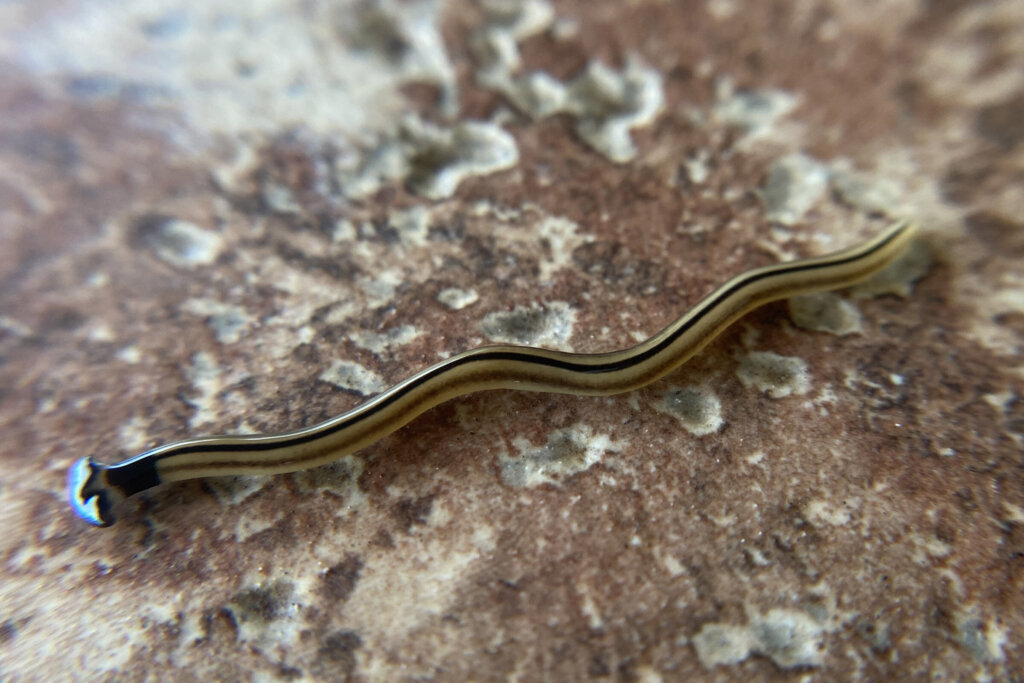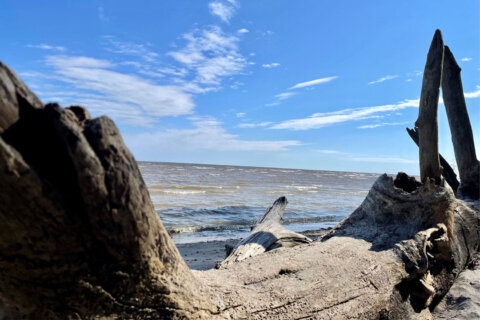Be on the lookout for an odd-looking invasive worm that appears to be infesting the D.C. area.
The genus of worm is called Bipalium, but they’re better known as “hammerhead worms” because of the unique shape of their head region and a distinctive black strip down their back.
Though most worms in our region are relatively benevolent, a local worm expert told WTOP that this particular species is no joke.
“These hammerhead worms are killers,” said University of Maryland Professor Michael Raupp, widely known as the “bug guy” for his area of expertise.
“They’re predators. They hunt our beneficial earthworms they also eat snails and slugs. This can upset the natural ecology of our forest and our natural ecosystems,” he said, adding the worms are thought to be able to exterminate other native species of worms.
The worms are known to secrete a nasty toxin called tetrodotoxin, which interferes with the signaling from nerves to muscles and causes paralysis, even death, in certain amounts. For humans, the threat posed by hammerhead worms is not so great, but for smaller creatures, like pets, this toxin can be fatal.
“This is the same toxin found in puffer fish,” Raupp said. “People that handle these hammerhead worms have noticed sensitivity and irritation of their skin. There have been reports of pets eating these with not good consequences. So, please do not handle these hammerhead worms.”

Despite the recent spread — and growth — of the hammerhead worm population, they have been detected in the United States since the early 1900s. Once thought of as rare, Raupp said there are now thousands of reports throughout the United States.
“We’ve had hundreds of observations here in the DMV over the last 15 years,” Raupp said.
Since there are no chemicals that safely repel hammerhead worms in your garden, what should you do if you find these predatory worms on your property?
“Put on a pair of latex gloves. Get your salt shaker and sprinkle the salt on the hammerhead worms,” Raupp said. “This will immobilize the worms. You can then pick them up, you can put them into a cup of bleach or you can freeze them.
“Once they’re dead. You should put them in a Ziploc bag, seal it and dispose of them. … When you’re finished, be sure to wash your hands.”








